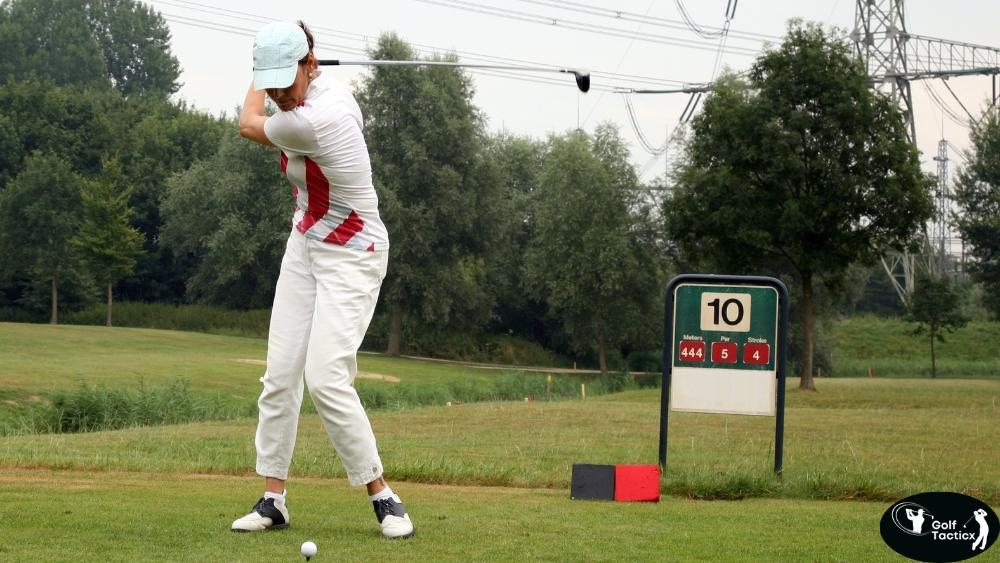In the previous post, we discussed how to stay calm and confident on the golf course, even when facing high-pressure situations that can test your skills and mental focus.
When it comes to competitive golf, talent and physical skill are only part of the equation. The real difference-makers in tough, high-stress tournaments or match play situations are mental toughness and resilience. How you handle adversity, stay focused, and push through difficult times on the course can make or break your performance.
In this post, we’ll explore how to develop mental toughness in golf so you can thrive under competitive pressure, bounce back from setbacks, and give yourself the best chance of success in any competitive environment.
What is Mental Toughness in Golf?
Mental toughness refers to your ability to stay calm, focused, and confident, even in high-pressure situations. It’s about having the inner strength to stay composed, push through difficulties, and perform at your best, no matter the circumstances. In golf, this means being able to handle bad shots, bad holes, or even bad rounds without letting it affect your overall game.
Some of the key traits of a mentally tough golfer include:
Resilience: The ability to bounce back after mistakes or setbacks.
Focus: The ability to maintain concentration for an entire round, even under stress.
Confidence: Trusting your skills and your game plan.
Emotional Control: Not letting frustration or anger take over after bad shots.
Optimism: Believing that good things will happen and that challenges can be overcome.
So how do you develop mental toughness for competitive play? Let’s dive into some strategies that will help you build a strong mental game.
Embrace the Pressure
Competitive golf brings pressure. But instead of trying to avoid or fear it, the first step is to embrace it. Pressure is an inevitable part of competition, but it doesn’t have to be a bad thing. In fact, it can be an opportunity for you to prove yourself.
Shift Your Perspective
Instead of thinking of pressure as something negative or stressful, try to view it as a challenge or a privilege. Understand that it’s a sign of progress you’re competing at a higher level, and the stakes are higher. This shift in perspective can help reduce anxiety and transform pressure into a driving force.
Accept Mistakes as Part of the Process
No one is perfect, and even the best golfers make mistakes. The key to mental toughness is learning to accept that errors are part of the game. Instead of letting mistakes derail your confidence, view them as opportunities to learn and improve. This mindset helps you stay grounded, no matter what happens.
Build Confidence Through Preparation
One of the best ways to develop mental toughness is to feel prepared for any situation. When you’re confident in your skills, your ability to perform under pressure improves significantly.
Practice Consistently
Mental toughness comes from knowing you’ve put in the work. The more you practice, the more confident you’ll feel when it’s time to compete. Consistency is key regularly practicing your swing, putting, and course management will give you the tools you need to handle competitive situations.
Simulate Pressure in Practice
The best way to prepare for competitive pressure is to simulate it during your practice sessions. Challenge yourself by setting up situations that mimic what you might experience in a real competition.
Set Time Limits: Try to play rounds with a time limit to create a sense of urgency.
Play with Friends: Compete with others who will push you to perform your best.
Create High-Stakes Challenges: Practice hitting difficult shots under pressure, like putting from long distances or hitting drives into narrow fairways.
Focus on Process, Not Outcome
One of the most common mental traps in competitive golf is focusing too much on the result whether it’s winning, scoring low, or avoiding mistakes. This can cause unnecessary stress and take your mind off the present moment.
Instead, focus on the process: executing your swing, making smart decisions, and sticking to your routine. This shift in focus helps you stay grounded and in control, rather than becoming overwhelmed by the bigger picture.
Break the Round Into Small Tasks
In competitive golf, there’s a tendency to look at the round as one big thing. This can lead to mental fatigue and anxiety. Instead, break the round down into small tasks one shot at a time, one hole at a time.
This mindset keeps you focused on what’s in front of you and prevents you from getting ahead of yourself. If you make a mistake on a hole, don’t dwell on it. Simply reset your focus and move forward to the next shot.
Trust Your Game Plan
Mental toughness also comes from trust. Trust the work you’ve put into your game and trust your process. When you have a solid game plan, stick to it, even when things aren’t going well. This consistency can help you remain confident and steady under pressure.
Develop Emotional Control
The ability to control your emotions, especially after a bad shot or a mistake, is one of the most critical aspects of mental toughness. Golf is a game of highs and lows, and how you manage your emotions directly impacts your performance.
Don’t Let Mistakes Define You
It’s easy to get frustrated after a bad shot, but mentally tough golfers don’t let mistakes define them. If you hit an errant shot or miss a putt, accept it, learn from it, and move on. The key is to not let a single mistake ruin your entire round. Everyone makes mistakes it’s how you respond to them that counts.
Use Positive Self-Talk
When negative thoughts creep in, replace them with positive affirmations. For example, instead of thinking, “I can’t believe I missed that shot,” tell yourself, “I’m going to learn from that mistake and do better next time.” Positive self-talk builds resilience and helps you stay focused on the future, not the past.
Stay Focused During Pressure Moments
During high-pressure moments in a tournament, staying focused on the task at hand is essential. In order to perform at your best, you need to maintain concentration and avoid distractions.
Control Your Environment
While you can’t control everything on the course, you can control your environment to a degree. During tense moments, minimize distractions by focusing on the task. Block out external noise whether it’s the crowd, other players, or your own nerves and focus solely on the next shot.
Stay Present in the Moment
To keep your mental edge, always stay present in the moment. Avoid worrying about past mistakes or future outcomes. Mindfulness techniques like focusing on your breath or using a mantra (such as “stay calm”) can help center your thoughts and keep you grounded when pressure rises.
Build Resilience with Regular Competition
One of the most effective ways to build mental toughness is by competing regularly. Whether you’re playing in tournaments, league matches, or even friendly competitions, regularly putting yourself in high-pressure situations will naturally help you grow mentally.
Start Small and Gradually Increase the Pressure
If you’re new to competitive play, start by entering local tournaments or casual match play rounds. As you gain experience, you’ll become better equipped to handle the pressure of more significant events. The key is to ease into competition rather than jumping into high-stress situations too soon.
Learn from Every Round
Every competitive round, whether you win or lose, provides valuable learning opportunities. After each round, reflect on how you handled the pressure. Were there moments where you stayed calm and confident? Were there areas where you struggled? This self-reflection will help you develop mental toughness over time.
Conclusion
Developing mental toughness for competitive play is about learning to stay calm, focused, and confident in high-pressure situations. By practicing your game, embracing pressure, focusing on the process, and managing your emotions, you can build the resilience needed to perform at your best in competitive environments.
Up next: We’ll cover Best Pre-Shot Routines for Consistency Under Pressure because we all know that a bad shot doesn’t have to ruin your entire round.
















Leave a Reply